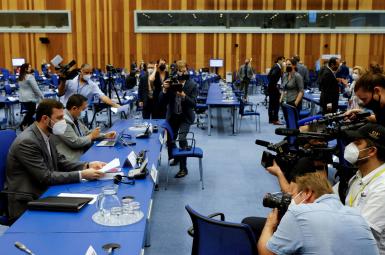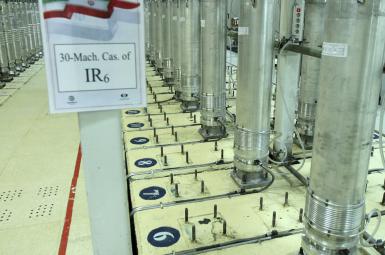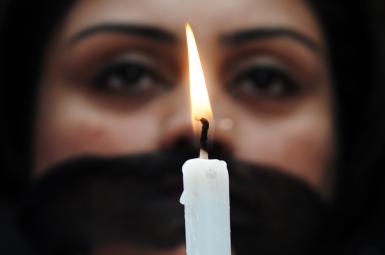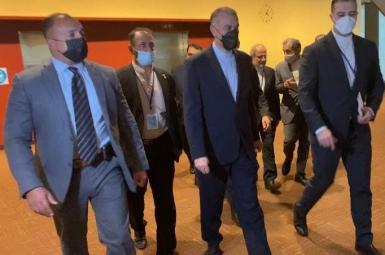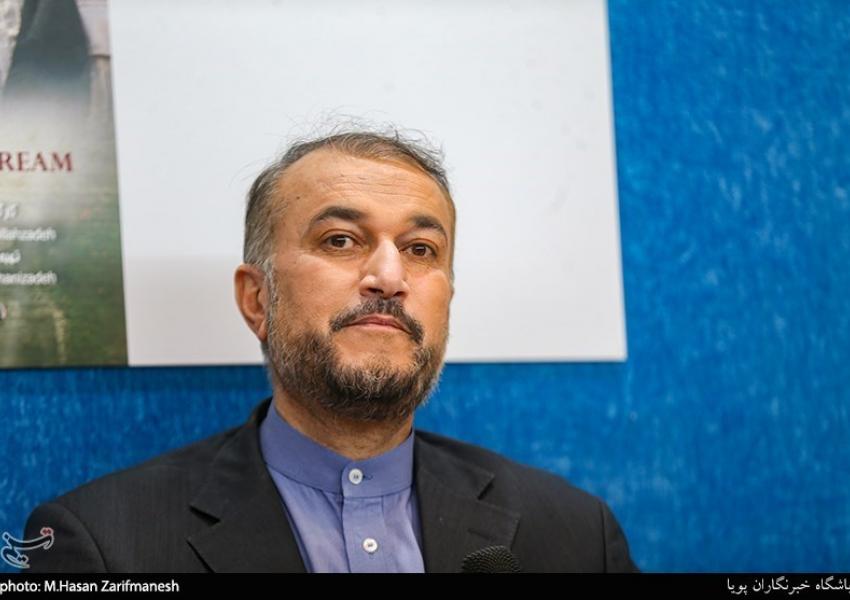
Iran In No Rush For Nuclear Talks As US Wants Missiles Included
In an interview with the official news agency (IRNA) Saturday, Iran's Foreign Minister Hossein Amir-Abdollahian said that concerns held by European signatories of Iran’s 2015 nuclear accord over Tehran’s nuclear progress were baseless.
"Their rush for returning to the [Vienna] talks is because they think we may reach a level in our nuclear progress that they consider worrying," he said, referring to steps Iran has taken beyond limits set by the deal, the JCPOA (Joint Comprehensive Plan of Action), since former United States President Donald Trump left the agreement in 2018 and imposed ‘maximum pressure’ sanctions on Iran.
"More than anything they want the new [Iranian] administration to sit at the negotiation table," Amir-Abdollahian said. He insisted that Iran wanted "tangible results" rather than "talks for the sake of talking."
Iran’s Vienna talks with world powers, which began in April and lapsed in June for the Iranian presidential election and subsequent transition, struggled to agree which US sanctions were incompatible with the JCPOA − which President Joe Biden has said he wants to revive − and how Iran’s developing nuclear program can be returned to JCPOA limits.
Biden’s Iran envoy, Robert Malley, said last December that the Trump administration had imposed sanctions − ostensibly on issues like links to Iranian leader’s office or ‘human rights’ − “with the barely concealed intent of making it harder for the Biden administration to come back” into the JCPOA.
The European JCPOA signatories – France, Germany and the United Kingdom – have appeared increasingly Iran concerned over the greater experience Iran has gained in managing its nuclear program and over its expanded stocks of enriched uranium.
People’s interest
Iranian President Ebrahim Raisi (Raeesi) pledged during the election campaign he would back reviving the JCPOA if it proved in the “people’s interest.” This week Raisi told the United Nations General Assembly Iran would curb its nuclear program under JCPOA terms if the US ended “all oppressive sanctions,” which he said were “crimes against humanity.”
Amir-Abdollahian, while insisting the Iranian administration is still reviewing previous talks, has adopted a more assertive tone than predecessor Mohammad Javad Zarif, who played a central role negotiating the JCPOA in 2015.
Amir-Abdollahian has also taken a lead role in explaining Iran’s approach. Zarif, who like Raisi was sanctioned in 2019 under a Trump executive order on links to the leader’s office, did not participate in the Vienna talks.
Responding to Amir-Abdollahian saying Friday that Iran would return to the talks "very soon," US State Department Spokesman Ned Price complained Friday that the US had no notion what this meant. Price said that while the US was ready to conclude talks quickly "the window of opportunity” for reviving the JCPOA was closing.
More dangerous
Joey Hood, the US Principal Deputy Assistant Secretary of State for Near Eastern Affairs, told Dubai-based al-Arabiya television Friday that talks should include Iran's missile program and links with regional allies. Iran has insisted on the original logic of the JCPOA, separating the nuclear issues from wider issues of regional defense and security.
Hood insisted that the US interest in reviving the 2015 deal was “not indefinite” as “at a certain time, the JCPOA is no longer going to convey the non-proliferation benefits that it once did.”
Hood insisted the US saw “altogether” Iran’s nuclear program, ballistic missile program and support for allies.
"Iran is engaged in destabilizing and destructive activities, and if it were to gain a nuclear weapon, it would be even more dangerous than before,” Hood said. “So, we need to get the nuclear program back into a clearly civilian track, and we need to also make sure that we address these concerns of the international community.”

